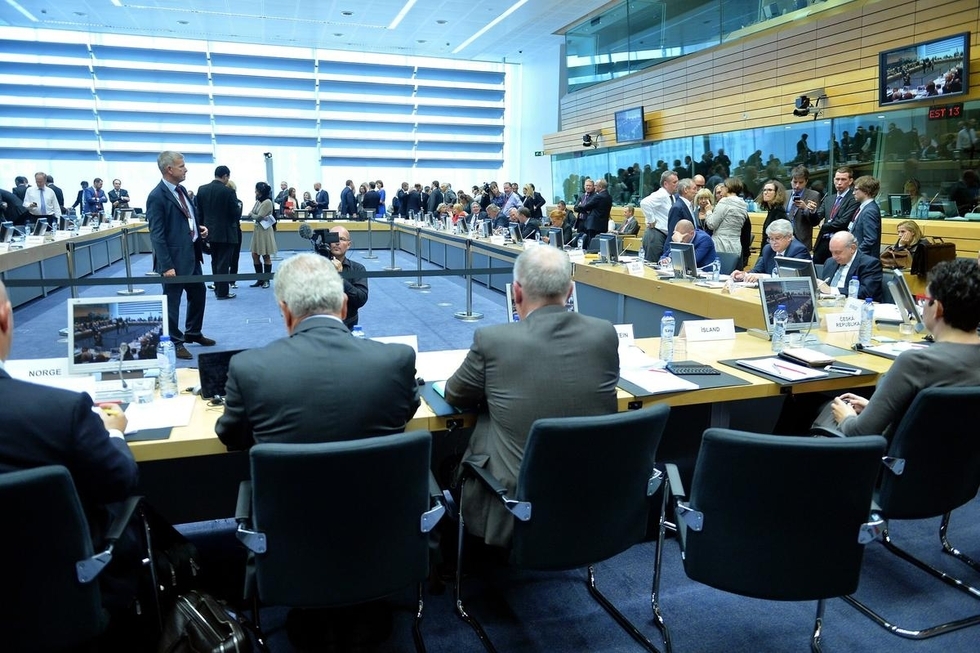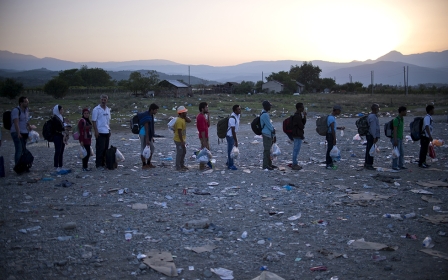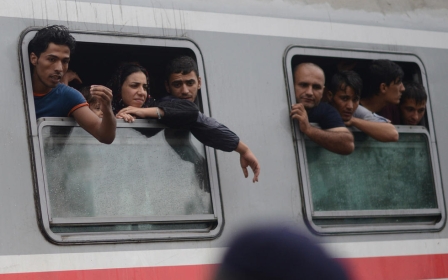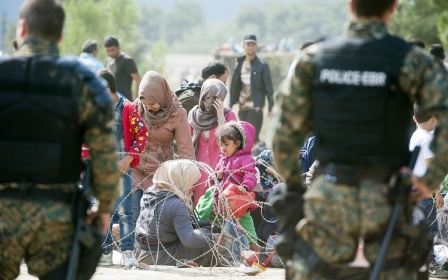EU holds emergency summit after refugee deal

European Union leaders will gather for an emergency summit on the migration crisis on Wednesday, a day after ministers forced through a controversial deal to relocate 120,000 refugees in a major blow to unity within the bloc.
Interior ministers briskly voted through the deal on Tuesday, under which EU countries must take a share of new arrivals from overstretched frontline states like Greece and Italy.
But in a rare step, it was passed by a majority vote instead of unanimously, with fierce opposition from eastern states.
Hungary, the Czech Republic, Romania and Slovakia all voted against the plan while Finland abstained, straining regional ties as Europe wrestles with its biggest migration crisis since World War II.
Luxembourg's Foreign Minister Jean Asselborn, whose country holds the rotating presidency of the EU, said the plan was forced through despite opposition because it was an "emergency situation".
"If we had not done this, Europe would have been even more divided," he told a press conference.
With the relocation vote out of the way, Wednesday's emergency EU summit will focus on strengthening the bloc's external borders, as well as giving extra funding to Turkey, Jordan, Lebanon and UN agencies.
But there may trouble ahead as Greece will likely face pressure to accept outside help in managing its borders, renewing sovereignty concerns in Athens just months after it was forced to accept a huge eurozone bailout.
'We have no choice but to leave'
Europe is under increasing pressure over its handling of a huge influx of hundreds of thousand of migrants and refugees this year, many fleeing conflict and repression in Syria, Afghanistan and Eritrea.
"We have no choice but to leave," said Abdullah, a 35-year-old father-of-two from war-ravaged Aleppo in Syria who has worked for three years to save up the money to travel to Europe.
The EU's new relocation plans were outlined after pictures of Alan Kurdi, a three-year old Syrian who drowned as his family attempted to reach Greece last month, sparked global outrage.
But the proposal has opened fresh rifts in a bloc already reeling from the Greek debt crisis.
Hungary and its eastern partners oppose the plan because they say Brussels has no right to make them take in thousands of people, and to do so amounts to a violation of their national sovereignty.
"Very soon we will find that the emperor is naked. Common sense has lost today!" Czech Interior Minister Milan Chovanec tweeted after the vote.
In Bratislava, Slovakian Prime Minister Robert Fico said he was prepared to break the EU's rules rather than accept the proposal.
"I would rather go to an infringement than to accept this diktat," he said, quoted by Slovakia's leading SME daily.
The crisis has raised fears the EU's cherished Schengen passport-free zone could collapse as countries close their borders to stem the flow of migrants and refugees, many of whom are heading for Germany.
Officials said the relocation deal covered 66,000 refugees who would be moved from Greece and Italy to other EU countries, plus another 54,000 who had previously been earmarked to be relocated from Hungary before it refused to back the plan.
It also involves the creation of "hotspots" - special centres in frontline states for receiving and processing asylum seekers and separating economic migrants from refugees fleeing conflict.
Last week, ministers approved a separate plan dating from May for relocating 40,000 refugees.
Britain, which has exercised its right to opt out of the relocation plan, on Tuesday confirmed the arrival of the first tranche of 20,000 refugees it is taking in from refugee camps in Turkey, Jordan and Lebanon.
Obama urges EU to accept 'fair share'
Ahead of Wednesday's meeting, US President Barack Obama pressed European nations to take their "fair share" of refugees.
The statement, which came after a phone call with German Chancellor Angela Merkel on Tuesday, is likely to be seen as a warning to those who opposed the deal.
But his call will be diluted by accusations that Washington itself has not done enough to address the crisis, despite being the leading humanitarian donor to the region. The US has promised to take in only 10,000 as refugees next year - a figure dwarfed by the up to one million Syrian refugees Germany is expecting to take in this year alone.
Merkel on Tuesday urged EU countries to cooperate more closely with Turkey to better protect the bloc's external borders.
"One cannot manage that alone, Greece cannot do it alone," Merkel told a joint news conference with Finland’s Prime Minister Juha Sipila in Berlin. "Without the support of Turkey, it will not work."
"EU President Donald Tusk visited Turkey, I have talked to President [Recep Tayyip] Erdogan, had a telephone conversation with the Turkish prime minister. Foreign Minister [Frank-Walter] Steinmeier was recently in Turkey. We will continue to strengthen our bilateral contacts," she added.
Turkey, which is currently hosting 1.9 million Syrian refugees and has spent around $8bn over the last five years, has been vocal in criticising the international community for not providing adequate support.
Merkel also said the EU should focus on the root causes of displacement, show solidarity with the countries most affected, strengthen external borders and take action against people smugglers.
"First of all, we have to look at the root causes of why people actually flee from their home countries," she said. "This is not a problem that can be solved overnight."
"We also have to carry out talks with Turkey, in order to better patrol the border between Greece and Turkey."
New MEE newsletter: Jerusalem Dispatch
Sign up to get the latest insights and analysis on Israel-Palestine, alongside Turkey Unpacked and other MEE newsletters
Middle East Eye delivers independent and unrivalled coverage and analysis of the Middle East, North Africa and beyond. To learn more about republishing this content and the associated fees, please fill out this form. More about MEE can be found here.





